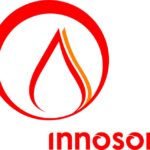The Central Bank of Nigeria (CBN) pledged to fund a scientific research programme geared towards developing a curative medical response to the COVID-19 pandemic.
This policy response – Healthcare Sector Research and Development Intervention Scheme (HSRDIS), is to help strengthen the public healthcare system with innovative financing of research and development (R&D) in the area of new and improved drugs, vaccines and diagnostics of infectious diseases in Nigeria.
The HSRDIS is designed to trigger intense national R&D activities to develop a Nigerian vaccine, drugs and herbal medicines against the spread of COVID-19 and any other communicable or non-communicable diseases through the provision of grants to biotechnological and pharmaceutical companies, institutions, researchers, and research institutes for the research and development of drugs, herbal medicines and vaccines for the control, prevention and treatment of infectious diseases. In other words, though the scheme was inspired by the COVID-19 pandemic, its application is not limited to the disease alone.
The idea is to use the scheme to boost domestic manufacturing of critical drugs and vaccines to ensure their sustainable domestic supply and reduce the bulk manufacturing costs of the drugs, herbal medicines and vaccines in Nigeria. To enable those to be involved in the scheme, the CBN put together guidelines on how to access the funds and other things involved so as to achieve the intended set objectives.
On a broad basis, the objectives of the scheme include the provision of grants for research and development (R&D) in new or revalidation of drug molecule, phytomedicines and vaccines for the control, prevention and treatment of infectious diseases in Nigeria. It is intended to boost domestic manufacturing of validated drugs and reduce the nation’s dependence on other countries for these drugs and vaccines.
It is expected to go a long way in improving the capacity of the biotechnological and pharmaceutical companies, institutions, researchers, and research institutes in the development of approved Nigerian drugs, herbal medicines and vaccines for infectious diseases.
Furthermore, it will support the capacity of relevant health agencies towards attaining WHO Maturity Level 3, a prerequisite for manufacturing of vaccines in Nigeria; facilitate partnership between academia (researchers, research institutes and universities) and industry in the research and development of drugs in the country.
As is to be expected, there is eligibility protocol that must be fulfilled by those to be engaged in the scheme. The guideline demands that research and development of candidate drugs, herbal medicines and vaccines must be validated by relevant health authorities for the control, prevention and treatment of infectious diseases. Also, beneficiaries must be involved in the manufacturing of drugs, herbal medicines and vaccines validated by relevant health authorities for the control, prevention and treatment of infectious diseases.
There will, at the same time, be an R&D process into new health technology for the control, prevention and treatment of infectious diseases. This will entail research partnership between academia and industry into the development of drugs and vaccines for the control, prevention and treatment of infectious diseases; research and development into validated phytomedicines for the control, prevention and treatment of infectious diseases.
Candidate vaccines undergoing pre-clinical testing or trials shall not be eligible for consideration under this scheme, although candidate vaccines 4 classified as confidential undergoing clinical testing or trials shall be eligible for consideration under the scheme if considered to have high potential to cross the clinical trial stage and prospects of scale by the Body of Experts (BoE).
In applying for the grant, the applicant shall be required to have conducted pre-clinical testing of the candidate drugs, and obtained certification from relevant health authorities for further research and development.
The Central Bank of Nigeria, in its wisdom, decided to fund the scheme from the developmental component of the Micro, Small and Medium Enterprise Development Fund (MSMEDF). For the avoidance of doubt, the grant limit with respect to research activities is a maximum of N50m and N500m maximum for development/manufacturing activities.
The apex bank insists that disbursement under the scheme shall be made to beneficiaries in tranches subject to approved milestones achieved. Similarly, there is a set time frame for research and development activities of not more than two years from the date of release of fund. For the Development and manufacturing activities, the time frame must not exceed one year from the date of release of fund.
Explaining further the involvement of the Body of Experts in the scheme, CBN said that it is responsible for the review and evaluation of submitted research proposals, as well as recommend for financing R&D projects with high potential to contribute to the development of the Nigerian vaccines for infectious diseases.
Hassan is a public affairs commentator

 Join Daily Trust WhatsApp Community For Quick Access To News and Happenings Around You.
Join Daily Trust WhatsApp Community For Quick Access To News and Happenings Around You.


